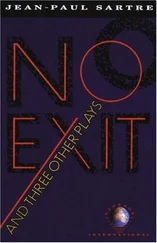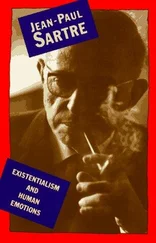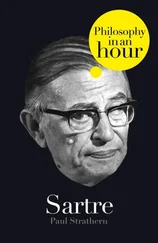Dalal returned to the same nightclub where she had met Sami and joined a group of belly dancers performing there. She performed with them for some time but was soon fed up with this exhausting job. She couldn’t compete with professional dancers who had trained in the top dance studios and with the best teachers in Beirut and Cairo. She decided to return to Baghdad and, with the money the smuggler had left her, she opened the Grief Adab. It did not take long for her to become well known throughout the city, especially after the philosopher became one of her customers. This connection gave her a reputation as a patron of writers and culture. She had a table permanently reserved for Abd al-Rahman with a sign that read “reserved for the philosopher.”
17
The philosopher was excited by Dalal’s voluptuous red lips, which held her white cigarette tightly. The smoke she was in the habit of blowing in his face smelled of alcohol and her favorite perfume. Knowing her was liberating and tickled him provocatively, especially when her body quivered left and right and she chewed gum. He was very attached to her because of the sense of freedom he felt with her — no jealousy and no moral or social responsibility. With her he was not concerned with values, especially those related to honor. Dalal had the capacity to free him of responsibility, and this freedom was the reason he was so attached to her. He was well aware that she had known many men before him and that she would know many after him, but she was fair, balanced, and had common sense. In a distorted kind of way, she was philosophical.
Dalal used to receive an English friend in her room. She claimed he was giving her English lessons, but she always sent him away the moment the philosopher stepped inside the nightclub. She used to walk her English friend to the door and bid him a polite and subtle adieu, then welcome the philosopher at the same door and with the same good manners, maintaining a balance in her relationships with both of them. Neither felt that she was giving the other more importance, as she divided her attention equally between the two. She demonstrated great skill in this ceremonial sending of one friend away and welcoming of the other.
When she finished her dance, she sat at the philosopher’s table to enjoy his and Ismail’s company. Sometimes she accepted other customers’ invitations to spend time at their tables, but she only did that reluctantly. She felt superior to the other customers, who knew nothing about philosophy. She enjoyed the company of her peers, those with the same intellectual interests. Abd al-Rahman didn’t mind sharing her with the others. He didn’t want her to himself because he did not want to feel responsible for her. He wanted her to belong to everyone in order to rid himself of any sense of jealousy, for the feeling of jealousy was not philosophical. Abd al-Rahman’s attitude puzzled Ismail, whose tribal and primitive values considered it a kind of insult. He couldn’t understand that the dancer was the philosopher’s mistress and yet she sat with others. Abd al-Rahman used to answer such smug oriental ideas with a philosophical image, “You will not become a true existentialist unless you get rid of this oriental jealousy.”
“But she is your friend,” Ismail would counter, to which Abd al-Rahman responded, “Yes, my friend, but it does not mean that I should become jealous.”
To convince his friend, Abd al-Rahman related an incident that involved Jean Paul Sartre and was witnessed by Abd al-Rahman in person, “Once I was visiting my friend Sartre, and Simone was present — I mean Simone de Beauvoir, of course. Naturally, there were other philosophers such as Merleau Ponty and Gabriel Marcel there as well. We were drinking heavily and feeling nauseated. In other words it was a little invitation to experience nausea in Sartre’s apartment. I was talking with my friend Sartre about some fundamental differences between us and suggested changes to include in his philosophy. He agreed with me on every single word I said and every single letter, in other words he agreed with me all the way.”
Ismail shouted, “Isn’t that great!”
The philosopher went on as he continued to drink his whiskey and blow smoke in his companion’s face. “Simone had disappeared and while Sartre was looking for his pencil case he wanted to ask her whether she had it or had seen it. We couldn’t find it anywhere in the house. The only place we had not searched was Simone’s bedroom.”
Ismail, shocked, interrupted him and asked whether they had entered her bedroom.
“Yes, we did, and we found her lying on the bed with her skirt pulled up, and Gabriel Petrovitekch was on top of her.”
“Who’s he?” inquired Ismail.
Abd al-Rahman explained, “He’s a Russian existentialist. He uses the pen name Midanoviski.”
Aghast, Ismail took a deep breath, raised his eyebrows as if he had just recovered from his drunkenness, and asked, “What did Sartre do?”
“Nothing, nothing,” explained Abd al-Rahman, hesitantly, “He told her, I am sorry darling, I didn’t mean to disturb you.”
Ismail Hadoub was stunned; his jaw dropped, and his eyes shone from the effects of alcohol and surprise. The story disturbed him deeply; he was angry and disgusted. Until then he had had a great respect for Simone de Beauvoir and had never heard such anecdotes about her. Yet he did not want to give up his friendship with the philosopher who went to France and witnessed existentialism with his own eyes, unlike any other Iraqi. Books, no matter how accurate they are, cannot transmit ideas as faithfully as an eyewitness. Abd al-Rahman had personally witnessed existentialism. He had touched it, felt it, and stuck to it like no one else, unlike those who did not see it but dreamt of it and imagined it.
Abd al-Rahman stood apart from other existentialists in the country. A huge gap separated him from them, for there is a difference between the one who has known something, experienced it, and endured it, and the one who has only imagined it. Abd al-Rahman must have truly known existentialism, in flesh and blood, like no one else.
Ismail suddenly had an idea. He began acting on it the afternoon following the one he had spent with the al-Sadriya philosopher at Grief Adab. He was often absent from the philosopher’s company, joining him occasionally in the evenings at the café or at Dalal Masabni’s nightclub. He claimed to be working at the Abnaa al-zaman newspaper and told the philosopher that Salim Malkun had asked him to write a piece about existentialism and Sartre in reply to an article by Suhail Idris, the distorter.
Abd al-Rahman objected to Suhail Idris’s tendency to combine nationalism and existentialism, an approach that seemed rather comical to him. He made fun of the author and mocked him loudly every time someone called Idris a nationalist. He didn’t believe that politics or ideology played a part in existentialism. Whenever Shaul mentioned that Sartre wrote political articles, Abd al-Rahman poked fun at him and all those who shared that opinion. He argued that the poor quality of the Arabic translations gave the false impression that Sartre’s writings had a political content. Abd al-Rahman not only disliked politics, he despised it. He recoiled from those who practiced politics and those who discussed it. He considered existentialism a mere feeling of nausea, a permanent nausea provoked by everything political, social, moral, and life-related.
Ismail’s absences became more frequent, and he rarely met with the philosopher, a big change from the past when he was with him almost always and everywhere. He described his absences as a Sartrian and existential commitment, a responsibility, yet not a philosophical responsibility of the kind Suhail Idris pretended to have, but an existential responsibility. Abd al-Rahman provided excuses and justifications for Ismail’s absences and never asked about him. All that concerned the philosopher was Ismail’s response to Suhail Idris. The truth of the matter is that Abd al-Rahman hated One-Eyed Jaseb’s attacks on Idris because they were aimed at an existentialist, even though Abd al-Rahman disagreed with Idris. He used to ask the public at the café, “Did Sartre approve of Gabriel Marcel?” and everyone would reply in one voice, “No.”
Читать дальше












